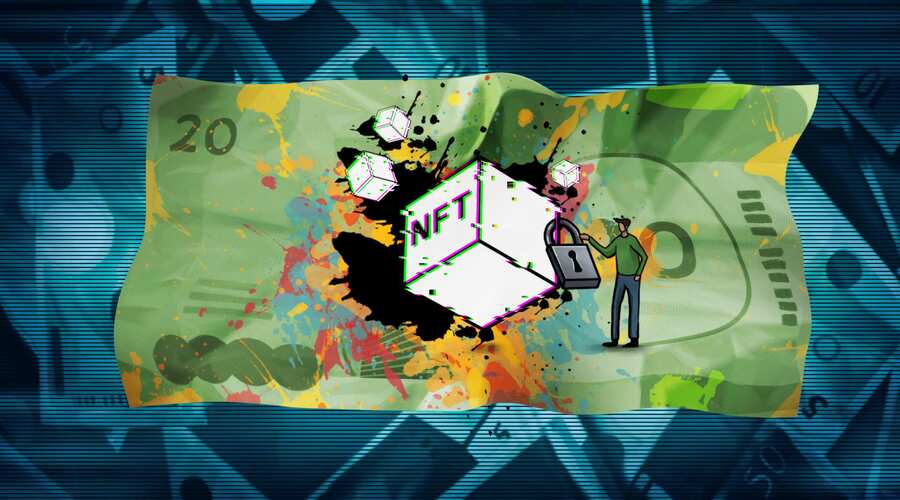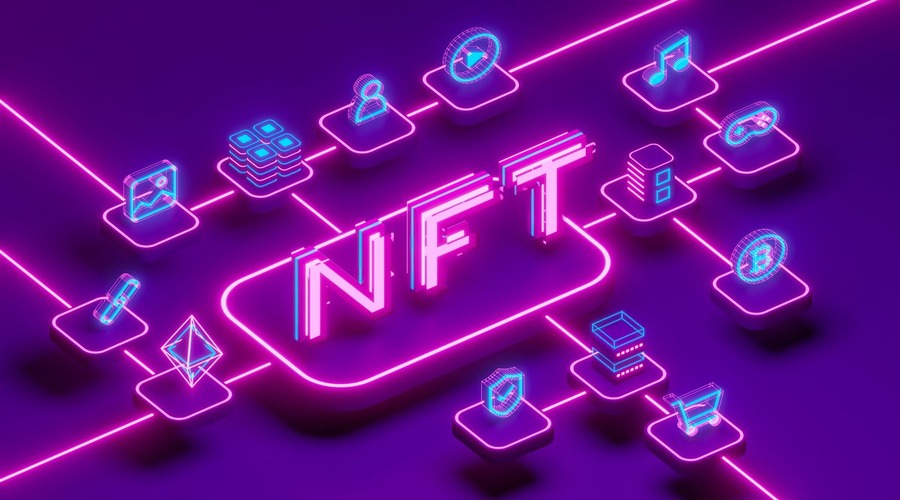Intellectual property rights play a critical role in protecting and incentivizing innovation and creativity. In the realm of scientific research and discoveries, the emergence of NFTs (Non-Fungible Tokens) has introduced a new paradigm for asserting ownership, proving authenticity, and managing licensing agreements. This article explores the intersection of NFTs and intellectual property rights in the scientific community, examining the implications, benefits, and considerations associated with this innovative technology.
Asserting Ownership with NFTs
NFTs have revolutionized the concept of ownership in the scientific community. By tokenizing scientific discoveries, research papers, or datasets, scientists can establish a verifiable record of ownership on the blockchain. This empowers researchers to assert control over their intellectual creations and receive recognition for their contributions.
- NFTs provide a transparent and immutable record of ownership, eliminating disputes and establishing clear rights to scientific intellectual property.
- Tokenizing scientific work allows scientists to protect their discoveries and establish a trail of ownership that can be easily verified.
Proving Authenticity and Attribution
Ensuring the authenticity and provenance of scientific research is of utmost importance. NFTs offer a powerful solution for validating the authenticity of scientific intellectual property, thereby enhancing trust and credibility within the scientific community.
- By associating NFTs with scientific work, researchers can create an indelible link between their discoveries and the blockchain, providing an irrefutable proof of authenticity.
- NFTs can contain metadata and documentation that substantiate the origins, contributors, and methodology behind scientific research, establishing a comprehensive record of provenance.
Managing Licensing and Commercialization

NFTs provide a decentralized platform for managing licensing and commercialization of scientific intellectual property. Through NFTs, scientists and institutions can explore new avenues for collaboration, revenue generation, and broader dissemination of their discoveries.
- Scientists can tokenize their research findings, allowing others to license or purchase specific rights to use, reproduce, or commercialize their work.
- NFTs enable the creation of licensing agreements that are executed and enforced through smart contracts, automating royalty payments and ensuring fair compensation for the use of scientific intellectual property.
Enforcing Intellectual Property Rights
The integration of NFTs in the scientific community offers enhanced mechanisms for enforcing intellectual property rights. The immutable nature of blockchain technology, combined with smart contracts, establishes a robust framework for protecting scientific discoveries and innovations.
- NFTs enable the automatic enforcement of licensing agreements, ensuring that scientists receive appropriate recognition and compensation for their contributions.
- The transparency and traceability of NFT transactions allow for easy monitoring and auditing, reducing the risk of unauthorized use or infringement of scientific intellectual property.
Considerations and Ethical Implications
While NFTs present exciting possibilities, it is essential to address certain considerations and ethical implications associated with their use in the scientific community.
- Striking a balance between open access to scientific knowledge and protecting the interests of researchers and institutions is crucial.
- Ethical guidelines and frameworks should be established to govern the tokenization and licensing of scientific intellectual property, ensuring responsible usage and avoiding misappropriation.
Future Outlook
The future of NFTs in intellectual property rights holds immense potential for the scientific community. Continued exploration and innovation in this field will shape how scientists protect their intellectual creations and promote collaboration and innovation.
- Further advancements in NFT technology, interoperability between platforms, and integration with scholarly publishing systems will streamline the management of scientific intellectual property.
- Standardization efforts and collaborations among scientists, researchers, legal experts, and technology developers will contribute to a robust ecosystem for NFT-based intellectual property management.
Attribution and Citations
NFTs can revolutionize the way scientific attribution and citations are handled. By incorporating NFTs into research publications, scientists can embed digital certificates of attribution that link back to the original work. This ensures proper recognition and citation of scientific contributions, fostering a culture of giving credit where it is due and facilitating the tracing of research lineage.
Peer Review and Transparency
NFTs can enhance the peer review process by providing transparent records of scientific work and its evaluation. Researchers can tokenize their preprints or manuscripts, allowing reviewers to access the original work and contribute their feedback directly on the blockchain. This decentralized approach promotes transparency, reduces the risk of fraud or manipulation, and strengthens the integrity of the peer review process.
Data Ownership and Control
- NFTs enable scientists to assert ownership over their research data, giving them greater control over its usage and dissemination.
- With NFTs, researchers can tokenize and attach ownership rights to their datasets, ensuring proper attribution and control over data access.
- Scientists can use NFTs to establish data licensing agreements and track the usage and distribution of their research data.
Preservation of Scientific Legacy
- NFTs offer a means to preserve and immortalize the scientific legacy of renowned researchers and scientists.
- By tokenizing their life’s work and attaching it to NFTs, scientists can ensure that their contributions are recorded and accessible to future generations.
- NFTs provide a mechanism for scientists to pass on their knowledge and achievements as digital artifacts, preserving their impact on scientific progress.
Ethical Considerations in Tokenizing Scientific Discoveries
- Tokenizing scientific discoveries raises ethical considerations regarding the fair distribution of rewards and recognition.
- Scientists must address issues such as ensuring equitable access to NFTs, avoiding exploitation of underprivileged researchers, and promoting responsible usage of tokenized scientific knowledge.
- Ethical guidelines and best practices should be developed to guide the responsible tokenization of scientific intellectual property.
Impact on Traditional Publishing Models
- NFTs have the potential to disrupt traditional publishing models in scientific research.
- Scientists can explore new avenues for disseminating their work directly through NFTs, reducing reliance on traditional journals.
- NFTs offer alternative revenue streams for researchers, challenging the existing publishing ecosystem and fostering innovation in scholarly communication.
Intellectual Property Rights in Collaborative Research
- NFTs can address intellectual property rights in collaborative research settings, where multiple researchers contribute to a project.
- By tokenizing collaborative work, NFTs can automatically distribute ownership and royalties based on predefined smart contracts.
- This ensures that each contributor is recognized and rewarded for their specific contributions within the collaborative research endeavor.
Resolving Intellectual Property Disputes
NFTs offer a decentralized and immutable record of ownership that can help resolve intellectual property disputes in the scientific community. In cases where multiple parties claim ownership or there is a disagreement over intellectual property rights, the transparent and verifiable nature of NFTs can serve as evidence to determine the rightful owner. This can simplify the resolution process and reduce litigation costs.
Collaborative Research and Funding
NFTs have the potential to facilitate collaborative research and funding in the scientific community. Scientists can tokenize their research projects and invite other researchers or institutions to contribute to the NFTs through crowdfunding or collaborative efforts. This approach enables diverse teams to collaborate on scientific endeavors and provides an innovative way to fund research projects beyond traditional grant systems.
Open Science and Accessible Data
NFTs can contribute to the open science movement by promoting the sharing of research data and making it accessible to a wider audience. Scientists can tokenize their datasets and attach open licenses to the NFTs, allowing other researchers to access and build upon the data. This encourages data sharing, reproducibility, and transparency in scientific research, fostering collaboration and accelerating scientific progress.
Digital Rights Management
NFTs have the potential to revolutionize digital rights management in the scientific community. By tokenizing scientific content, including research papers, images, and multimedia, scientists can attach digital rights and permissions to their work. This allows for precise control over how their intellectual property is accessed, reproduced, or distributed digitally. NFTs can enable scientists to define usage policies, such as granting temporary access to specific individuals or institutions, setting expiration dates for content usage, or imposing restrictions on commercial use. This ensures that scientists can protect their digital assets and have greater agency over how their work is consumed in the digital realm.
Intellectual Property Education and Awareness
As NFTs continue to reshape the intellectual property landscape, it becomes crucial to educate scientists and researchers about their rights, responsibilities, and the potential impact of NFTs on their work. Intellectual property education programs and initiatives can provide valuable insights into copyright laws, licensing agreements, fair use, and the ethical considerations associated with tokenizing scientific intellectual property. Increasing awareness about intellectual property rights and the benefits and challenges of NFTs will empower scientists to make informed decisions about how they protect, license, and commercialize their work in the digital age.
Cross-Disciplinary Collaboration and Intellectual Property
NFTs can facilitate cross-disciplinary collaboration and the management of intellectual property in interdisciplinary research projects. When scientists from different disciplines come together to work on a project, it is essential to establish clear guidelines and agreements regarding ownership, licensing, and rights management. NFTs can serve as a transparent and immutable record of contributions and ownership, ensuring that all collaborators receive proper recognition and compensation for their respective intellectual property. By leveraging NFTs, cross-disciplinary research efforts can navigate the complexities of intellectual property rights more effectively, fostering collaboration and innovation.
Intellectual Property Advocacy and Legal Frameworks
The integration of NFTs in the scientific community calls for the development of robust intellectual property advocacy and legal frameworks. Scientists, institutions, and intellectual property experts can collaborate to shape policies and guidelines that align with the principles of fairness, transparency, and responsible usage. Advocacy efforts can focus on raising awareness about the importance of intellectual property rights, promoting best practices for tokenizing scientific intellectual property, and advocating for legal protections that safeguard the rights of scientists. By actively engaging in intellectual property advocacy, the scientific community can ensure that the benefits of NFTs are realized while mitigating potential risks and challenges.
Incorporating these additional paragraphs on digital rights management, intellectual property education and awareness, cross-disciplinary collaboration and intellectual property, and intellectual property advocacy and legal frameworks will provide a more comprehensive exploration of the implications and considerations surrounding NFTs and intellectual property rights in the scientific community.
Conclusion
In conclusion, the integration of NFTs in intellectual property rights has the potential to transform how scientific discoveries and innovations are protected, licensed, and commercialized. By leveraging blockchain technology, scientists can assert ownership, prove authenticity, and manage licensing agreements with greater transparency and efficiency. While challenges and ethical considerations persist, the benefits of NFTs in the scientific community are significant, fostering innovation, collaboration, and the responsible dissemination of scientific knowledge.


